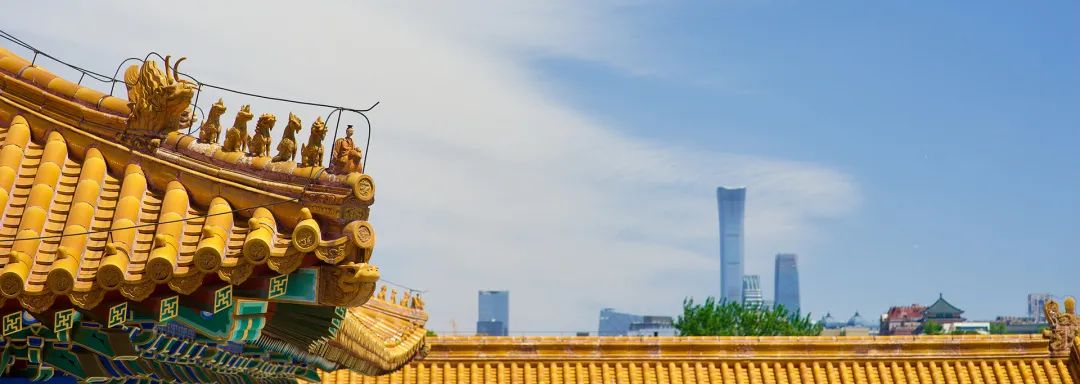 Research Update
Research Update
06
AprilEditor's note: Lin Shangli is the president of Renmin University of China and dean of the National Academy of Development and Strategy
General Secretary Xi Jinping emphasized in his speech at the opening ceremony of the seminar on studying and implementing the spirit of the 20th National Congress of the Communist Party of China that “The Chinese path to modernization contains unique worldviews, values, historical perspectives, civilization perspectives, democratic perspectives, ecological perspectives, and great practice, which is a significant innovation in the theory and practice of world’s modernization path.” This issue of the academic edition features an academic dialogue on the unique worldviews, values, historical perspectives, civilization perspectives, democratic perspectives, ecological perspectives contained in Chinese modernization and its great practice, aiming to academically clarify the Chinese modernization’s devotion to modernization and its significance for the development of the theory and practice of world modernization.
Host:
Whether a country is democratic and how to better achieve democracy are important criteria for measuring the degree of its modernization. Could you talk about the unique advantages of the democratic perspective contained in Chinese modernization and its practical implications.
Lin Shangli:

The general law of world modernization shows that a country’s ability to construct democracy largely affects its modernization process. The key to enhancing this ability is to what extent we can maintain our inner determination and truly plan democratic construction based on the modernization development logic that is in line with our own history, society, and culture.
Whether a country is democratic or not depends on whether the people are the masters of the country. Only by truly having the right to run the country can the people’s enthusiasm, initiative, and creativity be fully mobilized, social productivity and vitality can be fully released, therefore, the modernization process can be smoothly advanced. Western modern democracy originated from the resistance and limitation of royal authority, so its formation and development mainly revolved around representative institutions that limited or replaced royal authority, emphasizing that the people express their will through elected representatives. In practice, this form of democracy gradually exposed the institutional flaws that representatives cannot truly express the true opinions of the people. Some Western countries have tried to compensate for the shortcomings of representative democracy with deliberative democracy that allows citizens to participate directly. However, due to institutional, cultural, and other factors, the effect is not significant.
In the process of leading and promoting the modernization of China, the Communist Party of China has always unified its understanding of the general laws of modernization with a deepening understanding of the laws of Communist Party governance, socialist construction, and the development of human society. It has emphasized that people’s democracy is the lifeblood of socialism, and it is integral to our efforts to build a modern socialist country in all respects. It has also emphasized the advancement of whole-process people’s democracy in China must uphold the unity between Party leadership, the running of the country by the people, and law-based governance. The report of the 20th National Congress of the Communist Party of China proposed that “Whole-process people’s democracy is the defining feature of socialist democracy.” It regards the development of whole-process people’s democracy as an essential part of Chinese modernization, deeply revealing the significant importance of developing whole-process people’s democracy in the new journey of building a modern socialist country in all respects. It is precisely because CPC has always ensured the principal position of the people and ensured that the people are the masters of the country that the Chinese people have been able to successfully create extraordinary economic rapid development and long-term social stability miracles under the leadership of the CPC in advancing the process of Chinese modernization. Giving full expression to people’s will, protecting their rights and interests, sparking their creativity, and improving the system of institutions through which the people run the country. These have always been the immutable goal of our modernization drive, and defining feature of the Chinese modernization democracy.
Only broad and genuine democracy is effective democracy. In advancing Chinese modernization, China has developed the whole-process people’s democracy. As an important carrier and approach of the Chinese modernization democracy, whole-process people’s democracy in China integrates process-oriented democracy with results-oriented democracy, procedural democracy with substantive democracy, direct democracy with indirect democracy, and people’s democracy with the will of the state. It is a democracy that covers all aspects of the democratic process and all sectors of society. It ensures that the people are the masters of the country and can be concretely and realistically reflected in the policy measures of the CPC’s governance, the work of various aspects and levels of the CPC and the state organs, and the practical struggle of the CPC and the state to realize the people’s aspirations for a better life. In the whole-process people’s democracy , the people not only have the right to vote but also have extensive participation rights; the people can not only fully express their opinions and wishes but also can unite and work vigorously under the leadership of the CPC; the people not only have the right to be the masters of the country guaranteed by the system and the law but also have the right to supervise the operation of power and the relevant institutional guarantees.
Interpreter: Zhou Shiyan
Proofreader: Pan Yuxi